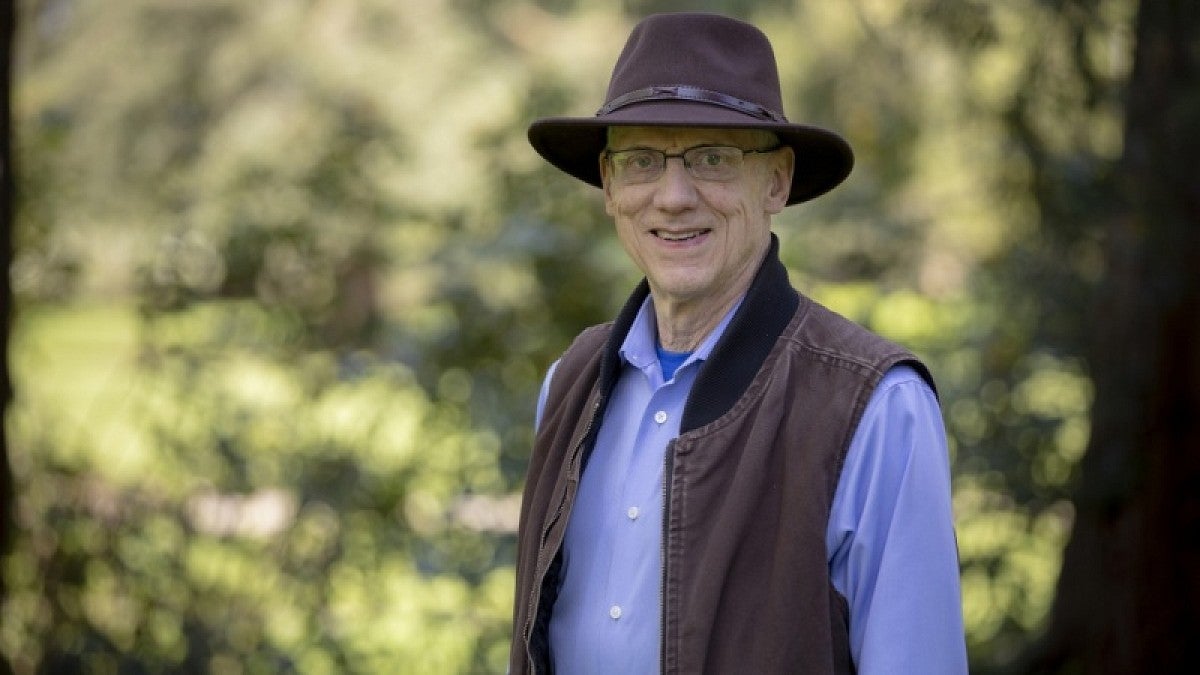Ed Whitelaw — University of Oregon economics professor emeritus, founder of the ECONorthwest consulting firm, adviser to governors and presidents, and tirelessly rigorous-but-entertaining educator for a half-century’s worth of UO students — died April 27 at age 80.
As an economist, Whitelaw touched the state, region and nation, demonstrating an unwavering dedication to spotting trends playing out over decades, not years, and prescience regarding the value that natural amenities — mountains, coasts, streams — can play in the economy.
“It can be a burden to see things before others do,” wrote John Tapogna, president of ECONorthwest, founded by Whitelaw in 1974 and today one of the largest economic consulting firms in the Pacific Northwest. “Seeing the unseen, and acting on what you see, is disruptive. Ed Whitelaw was a disruptive visionary.”
During the timber wars of the 1990s, Whitelaw drew intense backlash, and earned a bodyguard while testifying at a federal hearing, for accurately predicting to President Clinton that protecting old-growth forests and the Northern Spotted Owl would ultimately do more for the economy in drawing talented workers to a scenic Northwest than would turning those trees into lumber. Whitelaw eventually dubbed the area’s natural beauty a “second paycheck.”
If Whitelaw’s contributions to public policy were occasionally controversial, there was agreement among colleagues and former students that, as an educator who specialized in urban, labor and environmental economics, he was demanding but enthusiastic and entertaining. In recognition of Whitelaw’s impact, a few years ago an anonymous gift created the Ed Whitelaw Chair in Urban Economics.
“One would never forget meeting Ed, intensely curious, funny, bigger than life and just obviously having a blast being alive,” said Bruce Blonigen, Tykeson Dean of Arts and Sciences.
“His students will never forget his unique courses that were both fascinating and rigorous at the same time,” Blonigen said. “One of Ed’s favorite assignments would be to make his students provide answers to difficult questions in just a few words. It was like a boot camp to train your mind to cut right to the heart of a matter and succinctly communicate it.”
Dozens of Whitelaw “cub economists,” inspired to pursue careers in the field, went on to the best graduate schools in the country, among them Arthur O’Sullivan, an economics professor at Lewis and Clark College. He earned his doctorate at Princeton University, where during the 1980s, O’Sullivan said, four economics doctoral classes included former Whitelaw students.
“As an educator, Ed was the master of ‘value added,’” O’Sullivan said. “He transformed bright but unschooled youngsters into inquisitive and insightful cub economists. Ed Whitelaw added value to every student who was lucky enough to have him as a professor, and the largest increases in value went to students whose careers were launched by Ed’s unique blend of rigor, intuition and a joyful sense of humor.”
Jeremy Piger, a UO economics professor who interned at ECONorthwest in the late 1990s, witnessed firsthand Whitelaw’s commitment to boiling complicated issues down to their essence and communicating them clearly. Piger had been tasked with determining the value of a hydroelectric dam so that Whitelaw could report to public utility regulators prior to the sale of a facility in Washington.
“I had worked for close to two months on the project and Ed flew in the morning he was supposed to meet with the regulators and within 30 minutes he knew the stuff better than I did,” Piger said. “His intuition was amazing, his ability to distill things down to something that wasn’t oversimplified but was much easier for people to understand was his hallmark, and I think that’s why students loved him. They could quickly see the relevance of the things he was talking about.”
Dana Whitelaw, executive director of Bend’s High Desert Museum, said her father was a vibrant, colorful personality with a sense of humor and a taste for adventure.
She has childhood memories of Whitelaw regularly loading the family into their Volkswagen van after rainstorms, for gleeful trips throughout Eugene to, as her dad put it, “save the city.” Whitelaw would stop at intersections converted to small lakes by clogged drains and, wading in and depositing leaves and other debris on the sidewalk, laugh uproariously as a whirlpool of water was restored and swirled around him before vanishing into the sewers.
“My dad was endlessly energetic,” she said. “He was joyous in the spontaneous happenings of life.”
The Whitelaw family hasn’t determined whether a public memorial will be held. Donations in recognition of Ed Whitelaw can be made to the High Desert Museum, 59800 US-97, Bend, Oregon, 97702.
—By Matt Cooper, University Communications


